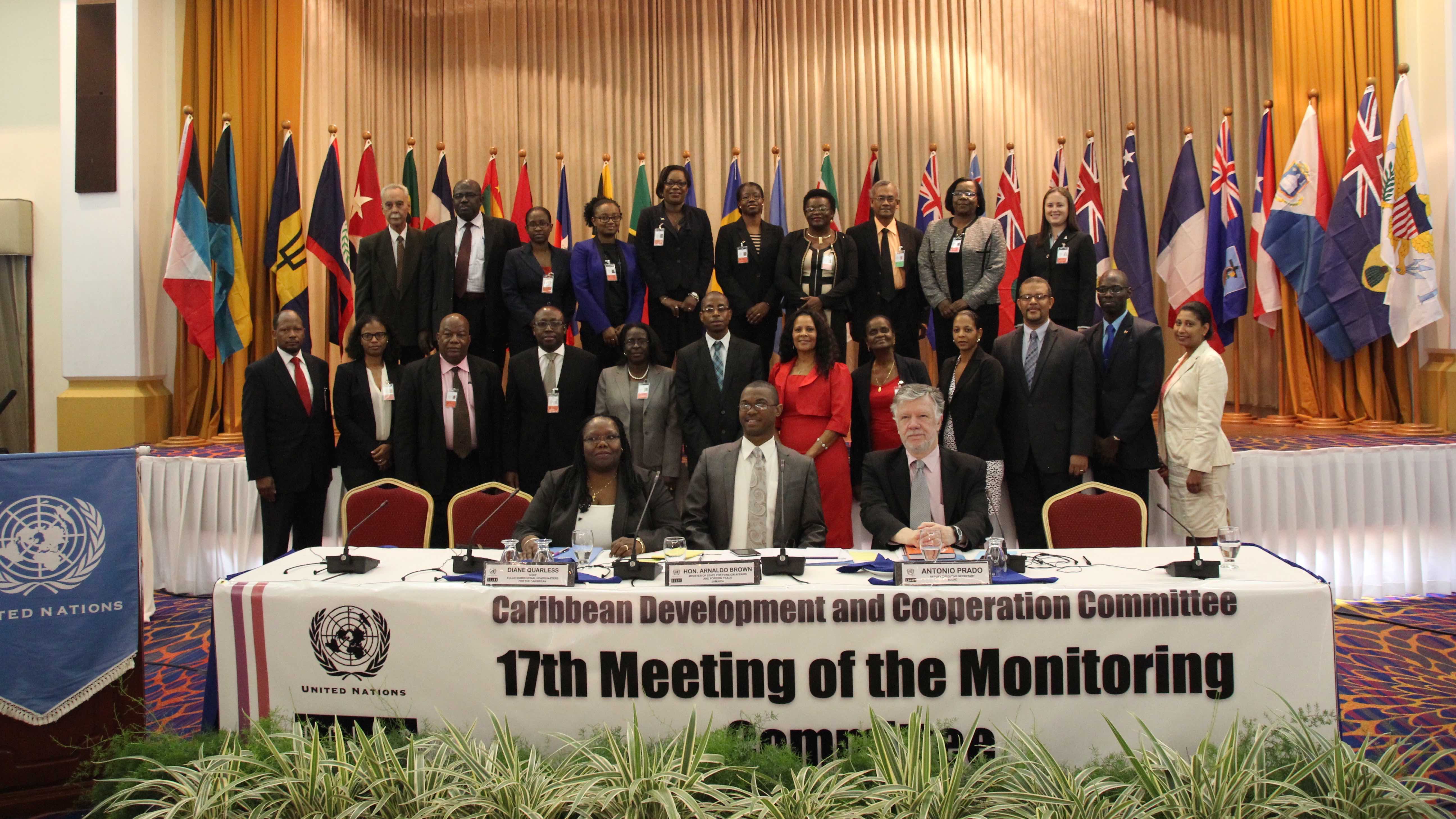XVII Reunión del Comité de Monitoreo del Comité de Desarrollo y Cooperación del Caribe
Evento
Área(s) de trabajo
Información del evento
Fecha
26 Jun 2015, 05:30 - 15:00Tipo de evento
Comité de monitoreo
Participación
Con invitación
Contenido relacionado

26 Jun 2015
| Noticias
ECLAC Executive Secretary opens High Level Meeting in Trinidad and Tobago
Ministers and high-level Government representatives from the Caribbean gathered in Trinidad and Tobago to consider progress made in implementation of development strategies for the region on occasion…
Sede(s) subregional(es) y oficina(s)
Institución organizadora
Oficina Subregional de CEPAL para el Caribe
- http://www.cepal.org/en/headquarters-and-offices/eclac-caribbean
- (868)224-8000
